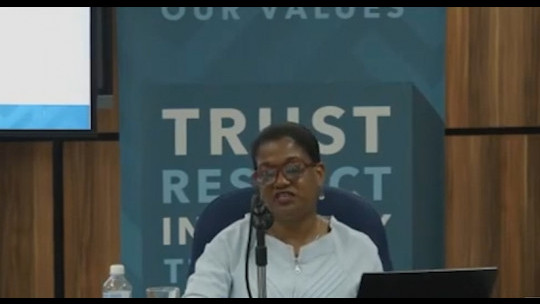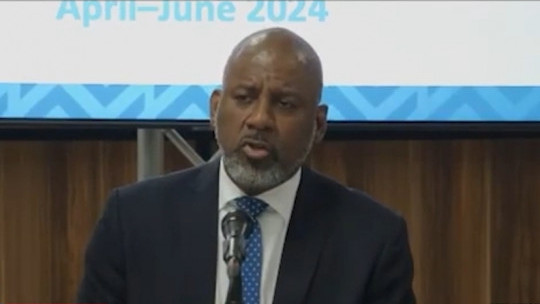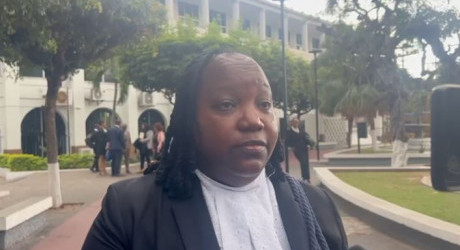.png)
Peisha Bryan Lee, Programme Manager for Vision 2030 and PIOJ Director General Dr. Wayne Henry
Jamaica could miss the timeline set to achieve developed country status, through the Vision 2030 National Development Plan.
Programme Manager for Vision 2030, Peisha Bryan Lee, made the admission while responding to questions at the Planning Institute of Jamaica's quarterly press briefing this week.
"Our data does suggest that the goals and outcomes, and particularly I would say the targets that were benchmarked against developed country status standards, most likely will not be achieved by 2030."
"I put in this proviso though, when we started the process of long-term national development planning, we thought of getting to developed country status. We at the time made an assessment in 2007 that this could be done within 21 years, so 2030. But the intention was not to be stuck on a timeline, but to be stuck on a pathway and a vision for the Jamaica that we all want," she conceded.
But PIOJ Director General Dr. Wayne Henry said there has been improvement across all four national goals, with 62.2 per cent of the 75 national outcome indicators being little, somewhat, mostly or fully achieved when measured against the 2021 tag.
"[Some] 25.7 per cent of targets were fully achieved or exceeded; 6.8 per cent were mostly achieved as between 80-99 per cent; and 20.3 per cent were somewhat achieved as between 40-79 per cent; 9.5 per cent were a little achieved as 1-39 per cent; and 37.8 per cent were same as or worse than the baseline year 2007 value, at between 0 per cent or negative," he outlined.
The areas of advancement include human capital development and strengthened social protection, along with improved fiscal outcomes.
Areas for improvement
But Dr. Henry said there are a few areas which need improvement as Jamaica pushes to achieve Vision 2030, and by extention the Global Sustainable Development Goals.
He said insufficient progress and development loss is being experienced in relation to some indicators.
"Some of these include gaps in human capital development and social protection with undesirable rates of chronic non-communicable diseases, NCDs, poverty, and poor attendance from early childhood to secondary levels of education falling short of the target; challenges to security, safety and governance with an over-representation of violence and a high per capita murder rate by global standards."
He also cited gaps in economic growth and competitiveness, including low levels of economic growth, insufficient competitiveness and earnings in key sectors, as well as increasing consumer prices and inflation levels above target, and gaps in capacity for environmental resilience and quality of social infrastructure.
comments powered by Disqus










 All feeds
All feeds







